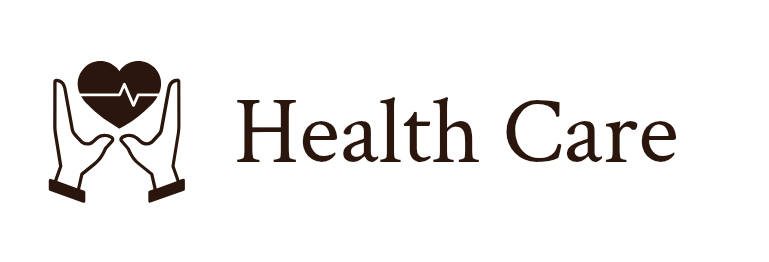
Dietary Habits That Contribute to High Blood Pressure
Dietary Habits That Contribute to High Blood Pressure High blood pressure is a serious condition that affects millions of people worldwide. While genetics and other factors can contribute to its development, your dietary habits play a significant role in determining whether or not you’ll develop hypertension. In this blog post, we’ll explore some of the most common dietary habits that can lead to high blood pressure and discuss how you can make changes to protect your health and wellbeing. Ready to take control of your diet and lower your risk for hypertension? Let’s dive in!
Introduction to High Blood Pressure
High blood pressure, also known as hypertension, is a condition in which the force of your blood against the walls of your arteries is high enough that it may eventually cause health problems, such as heart disease.
There are a number of things you can do to lower your blood pressure, and diet is one of them. Eating certain foods and avoiding others can help keep your blood pressure in check.
Here are some dietary habits that contribute to high blood pressure:
1. Eating too much salt: Salt makes your body hold onto extra water, which increases blood volume and leads to higher blood pressure.
2. Not eating enough fruits and vegetables: Fruits and vegetables are rich in potassium, which helps to balance out the effects of sodium and helps lower blood pressure.
3. Eating too much saturated and trans fat: These types of fats can raise your cholesterol levels, which can harden arteries and lead to higher blood pressure.
4. Not eating enough fiber: Fiber helps reduce cholesterol levels and keeps blood sugar levels in check, both of which can help lower blood pressure.
Factors that Influence Blood Pressure
The factors that influence blood pressure are many and varied. Some of the more common ones include:
• Diet: A high salt diet can contribute to high blood pressure. processed foods are often high in salt content, as are some fast foods.
• Weight: Being overweight or obese can increase blood pressure.
• Stress: Stress can cause a temporary increase in blood pressure.
• Alcohol: Drinking too much alcohol can raise blood pressure.
• Age: As we age, our arteries become less flexible and our blood pressure tends to increase.
Dietary Habits and Blood Pressure
A major dietary contributor to high blood pressure is excess sodium. The average American consumes over 3,400 mg of sodium per day, which is more than double the recommended amount for healthy adults. A high sodium diet can cause your body to retain water and lead to an increase in blood volume. This, in turn, can cause an increase in blood pressure.
Other dietary contributors to high blood pressure include a lack of potassium, a lack of calcium, and a diet high in saturated and trans fats. All of these nutrients play a role in maintaining healthy blood pressure levels.
If you are concerned about your blood pressure, talk to your doctor about ways you can change your diet to help lower it. Reducing your intake of salt and increasing your intake of fruits and vegetables rich in potassium, calcium, and magnesium can all help lower blood pressure. In addition, making sure you get enough fiber each day can also help reduce blood pressure.
Foods That Lower Blood Pressure
There are many different foods that can help to lower blood pressure. Some of the best foods for lowering blood pressure include:
1. Dark leafy greens – Greens like spinach and kale are rich in nitrates, which have been shown to help lower blood pressure.
2. Fatty fish – Fish like salmon and mackerel are high in omega-3 fatty acids, which can help to reduce inflammation and lower blood pressure.
3. Nuts and seeds – Nuts and seeds are a great source of magnesium, a mineral that has been shown to help lower blood pressure.
4. Beets – Beets are rich in nitrates, which as mentioned above, can help to lower blood pressure.
5. Garlic – Garlic has long been used as a natural remedy for high blood pressure.
Foods That Increase Blood Pressure
While there are many different factors that can contribute to high blood pressure, dietary habits are one of the most important. Here are some foods that can increase blood pressure:
1. Salt: Eating too much salt can cause your body to retain fluid, which leads to an increase in blood pressure.
2. Fatty meats: Foods like bacon, sausage, and other fatty meats can increase cholesterol levels, which can in turn lead to higher blood pressure.
3. Trans fats: Trans fats are found in processed foods and can also increase cholesterol levels and blood pressure.
4. Sugar: Too much sugar can cause insulin resistance, which is a major factor in developing high blood pressure.
5. Alcohol: Drinking too much alcohol can raise your blood pressure.
A diet high in sodium can cause an increase in blood pressure. Foods that are high in sodium include:
-Processed foods such as lunch meats, bacon, and sausage
-Canned soups and vegetables
-Frozen dinners
-Salted nuts and seeds
-Snack foods such as chips and pretzels
-Condiments such as soy sauce and ketchup
A diet high in saturated fat can also increase blood pressure. Foods that are high in saturated fat include:
-Red meat
-Whole milk and other dairy products
-Butter and other solid fats
Other Ways To Manage Blood Pressure
In addition to making dietary changes, there are other ways that you can manage your blood pressure. Regular exercise is important for maintaining a healthy blood pressure. If you are not active enough, consider adding more physical activity to your daily routine. You should also avoid smoking and excessive alcohol consumption, as these can contribute to high blood pressure. If you are struggling to manage your blood pressure, speak to your doctor about medication options.
There are many other ways to manage blood pressure, in addition to dietary habits. Some other ways to manage blood pressure include:
-Exercise: Exercise is a great way to manage blood pressure. Regular exercise can help to lower blood pressure by improving circulation and heart health.
-Weight loss: Losing weight can also help to reduce blood pressure. If you are overweight or obese, losing weight can help to lower your blood pressure and improve your overall health.
-Stress management: Managing stress can also help to reduce blood pressure. Stress can cause the body’s blood vessels to constrict, which can lead to higher blood pressure. Finding ways to relax and manage stress can help to lower blood pressure and improve your overall health.
Conclusion
High blood pressure can have serious health risks, so it is important to understand the dietary habits that can contribute to it. Eating a balanced diet with plenty of fruits and vegetables, limiting processed foods and sugar intake, avoiding alcohol and caffeine consumption, as well as exercising regularly are just some of the ways you can reduce your risk for high blood pressure. With these tips in mind, you should be able to make healthier choices that will help keep your heart healthy!
